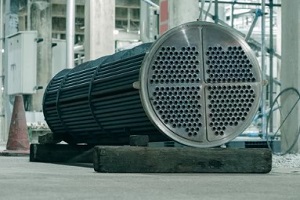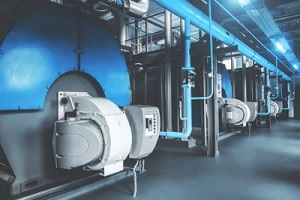 As energy costs continue to rise, building owners and operators are increasingly looking for ways to reduce energy consumption and lower operating costs. Free cooling is a type of cooling operation that utilizes low-temperature outside air to cool water or other fluids without mechanical refrigeration.
As energy costs continue to rise, building owners and operators are increasingly looking for ways to reduce energy consumption and lower operating costs. Free cooling is a type of cooling operation that utilizes low-temperature outside air to cool water or other fluids without mechanical refrigeration.
As a building operator, you should know whether your facility has a heat exchanger or a chiller system, and the differences between night-time, daytime, and weekend operation. It is also important to understand the similarities in water treatment for both types of systems.
By understanding these concepts, building owners and operators can make informed decisions about their cooling systems and achieve significant energy savings during the shoulder months between summer and winter.
What Does Free Cooling Mean?
Free cooling is a type of cooling operation that takes advantage of low-temperature outside air to cool water or other fluids without the need for mechanical refrigeration. Unlike traditional mechanical refrigeration, which relies on energy-intensive compressors, free cooling utilizes the temperature difference between the outdoor air and the building’s chilled water loop.
This is achieved by diverting the water flow from the chiller to an external heat exchanger, that cools the water using outside air. The cooled water is then pumped back into the building’s chilled water loop to provide cooling. It is particularly effective in areas where the outside air temperature is lower than the desired chilled water temperature, making it an energy-efficient and cost-effective option for building cooling.
To determine when to switch to free cooling versus mechanical cooling, building engineers use a control system that monitors outside air temperature and the building’s cooling load. If the outside air temperature is lower than the desired chilled water temperature, and the building’s cooling load is within a certain range, the control system will switch from mechanical cooling to free cooling mode.
Building engineers may also manually switch to free cooling mode when they anticipate cooler outside air temperatures, such as during the nighttime or on weekends, to further reduce energy consumption and costs.
Heat Exchanger Or Chiller: Which Is The Best Choice?
 The choice between using a chiller or a heat exchanger in a free cooling system depends on various factors, such as the building’s cooling load, location, climate, and cooling system design. Both chillers and heat exchangers can be used in free cooling systems to cool water or other fluids in a building’s chilled water loop. However, the way they operate is different.
The choice between using a chiller or a heat exchanger in a free cooling system depends on various factors, such as the building’s cooling load, location, climate, and cooling system design. Both chillers and heat exchangers can be used in free cooling systems to cool water or other fluids in a building’s chilled water loop. However, the way they operate is different.
Chillers are typically used in mechanical refrigeration systems to cool water or other fluids in a building’s chilled water loop. During free cooling, chillers can be bypassed and the water can be diverted to an external heat exchanger, which cools the water using low-temperature outside air. Basically, heat exchangers are devices that transfer heat between two fluids without mixing them.
If it is the peak of summer, you will need to use your chiller to mechanically produce cool water, while a heat exchanger will work on its own when outside temperatures are above freezing but below the chilled water temperature (usually 55° F or lower).
Nighttime vs. Daytime Operation
One of the biggest factors that determines how effective free cooling will be in your facility is when the cooling occurs. Free cooling relies on outdoor temperatures to determine the level of cooling that is achievable in a building.
Nighttime temperatures are typically cooler than daytime, which means that facilities that operate at night can benefit significantly from free cooling. Even if your facility is not active at night, pre-cooling at night can still be an inexpensive way to cut down on energy costs.
By switching to free cooling at night to bring the building down to a lower temperature than what you maintain for the ambient during the day, as the day heats up, your building will not need to rely on energy-powered chilling as early until the cool interior gradually warms. If the daytime temperatures are cooler than the ideal ambient, you can continue free cooling during the day as well.
Weekend Operation
The weekend cooling operation is important for energy efficiency in commercial buildings as they typically experience reduced occupancy during weekends, resulting in a lower cooling load. Building operators can optimize energy efficiency during this period by adjusting cooling setpoints.
Raising the temperature slightly by adjusting cooling setpoints can reduce the cooling load and the energy required to maintain the building’s indoor temperature. In addition, free cooling can be incorporated into the building’s cooling system if the outside air temperature is cool enough, which can further reduce energy consumption and costs.
Contact The Water Treatment Pros
To learn more about Tower Water's services reach out today!
Keep in mind as well that it is more energy efficient to keep a building at a slightly higher but steady temperature through the weekend, than completely shutting off cooling and restarting at the start of the work week.
Water Treatment Similarities
Water treatment is essential for both heat exchangers and chillers as it helps maintain the efficiency and lifespan of these components. In both types of systems, water is used as a heat transfer fluid, and over time, it can become contaminated with debris, biofilm, or scale.
 In terms of free cooling, water treatment is crucial as it helps maintain and maximize the efficiency of the cooling system by removing impurities from the water. Overall, water treatment is essential for sustaining the efficiency and lifespan of a building’s cooling system, whether it uses a heat exchanger or a chiller. By ensuring proper water treatment, building operators can improve the effectiveness of free cooling and reduce energy consumption and costs while maintaining indoor comfort levels.
In terms of free cooling, water treatment is crucial as it helps maintain and maximize the efficiency of the cooling system by removing impurities from the water. Overall, water treatment is essential for sustaining the efficiency and lifespan of a building’s cooling system, whether it uses a heat exchanger or a chiller. By ensuring proper water treatment, building operators can improve the effectiveness of free cooling and reduce energy consumption and costs while maintaining indoor comfort levels.
Maintain A Free Cooling Chiller With Help From The Experts
Companies that are concerned with reducing their energy costs can benefit from free cooling if they are in an area where the ambient outdoor temperatures allow this practice. However, these buildings should still maintain adequate water treatment practices for their unit.
The team at Tower Water is available to guide you on how to improve your water treatment and guarantee your cooling operation is optimized. Contact us today at 212-518-6475 to get started!
